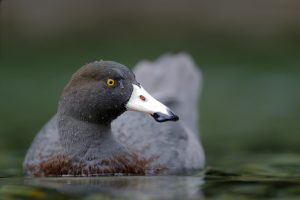Time for a change?
Well, well, well, as I predicted in my pre-election blog (OK, so it was hardly long odds or a wild bet) we have a new government. The question is now, what’s in it for conservation?
At the moment, we’re waiting to see who gets the ministerial posts of most interest to us here at Forest & Bird: Conservation, Environment, Climate Change (if they have a specific minister with responsibility for climate change this time round), Energy, Agriculture, Land Information and Fisheries.
The Cabinet is tipped to be announced as early as next week – as soon as we know we’ll be lining up for a bit of a chat on certain relevant issues with all of them. Will be interesting to see who gets what – and what kind of take they have on conservation-related issues. Will let you know how it goes.
Meanwhile to those ministers who got the boot, it may be some comfort to you as you exit the (low emission, yeah right!) Crown limo for the last time to know that we have, now and then, been grateful for some of the things you did:
- Fisheries Minister Jim Anderton – thanks for at least trying to bring a more precautionary approach to legislation on fisheries management, even if you did get thwarted by certain minor parties who received donations from the fishing industry. Your regulations protecting albatrosses from fisheries by-catch get a round of applause as well.
- Conservation Ministers Steve Chadwick and Chris Carter – good work on establishing a whole lot more high country parks. Nice to know our high country lakes won’t be surrounded by McMansions.
- Good on ya also to Steve and Jim for also putting in place decent protection for endangered Hector’s and Maui’s dolphins.
- Land Information Minister David Parker – had the smarts to figure out that tenure review was going badly wrong for our South Island high country, and actually did something about it.
Things they could have done better on: improving nationwide quality of water in our rivers and lakes; protecting NZ sea lions from being killed in the squid fishery; increasing pest control in our forests; reversing the decline of native biodiversity, dissuading State-owned power companies from proposing environmentally damaging hydro schemes … we could go on …
But hey, that leaves plenty for National to get working on!

